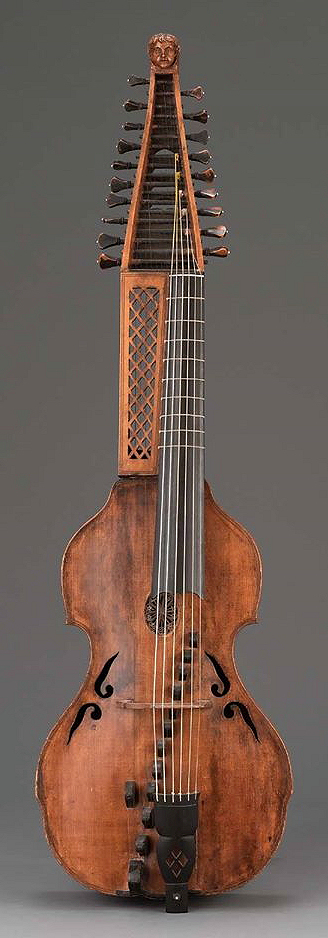 Baryton
Baryton
A bowed string instrument of the 18th century, similar to the bass viol, but having sympathetic strings on the rear of the fingerboard.
According to Wikipedia:
The baryton can be viewed as a sort of augmented bass viol. It is similar in size to the latter instrument and likewise has six or seven strings of gut, arranged over a fretted fingerboard and played with a bow. The instrument is held vertically and is supported by the player’s legs …
The baryton differs from the bass viol in having an additional set of wire strings. These perform two functions: they vibrate sympathetically with the bowed strings, enriching the tone, and they can also be plucked by the left thumb of the performer, creating a contrasting tonal quality.
According to the OED, the name of the instrument is a loan word from French baryton or Italian baritono, and ultimately derives from Greek bary- + tonos ‘deep-pitched’.
2 thoughts on “Word: Baryton”
Comments are closed.

The baryton is a wonderful instrument. Prince Esterhazy, Haydn’s boss, played it and Haydn was required to write trios for him to play. Haydn joined in on viola. Needless to say the baryton player had the best tunes.
They are collected on a boxed set, and there are twenty one CDs. See and my own review (you’ll have to guess which).
Suddenly Prince Esterhazy took up opera and the sequence stopped.
It’s a stringed instrument but there are bits you can thump and twang as well, which may be why it appealed to His Highness.
Thanks, Robin. I don’t think I’ve ever (knowingly) heard a baryton. I knew about the Haydn woks for Prince Esterhazy but not that they’d all been recorded. One for the wish list, perhaps.